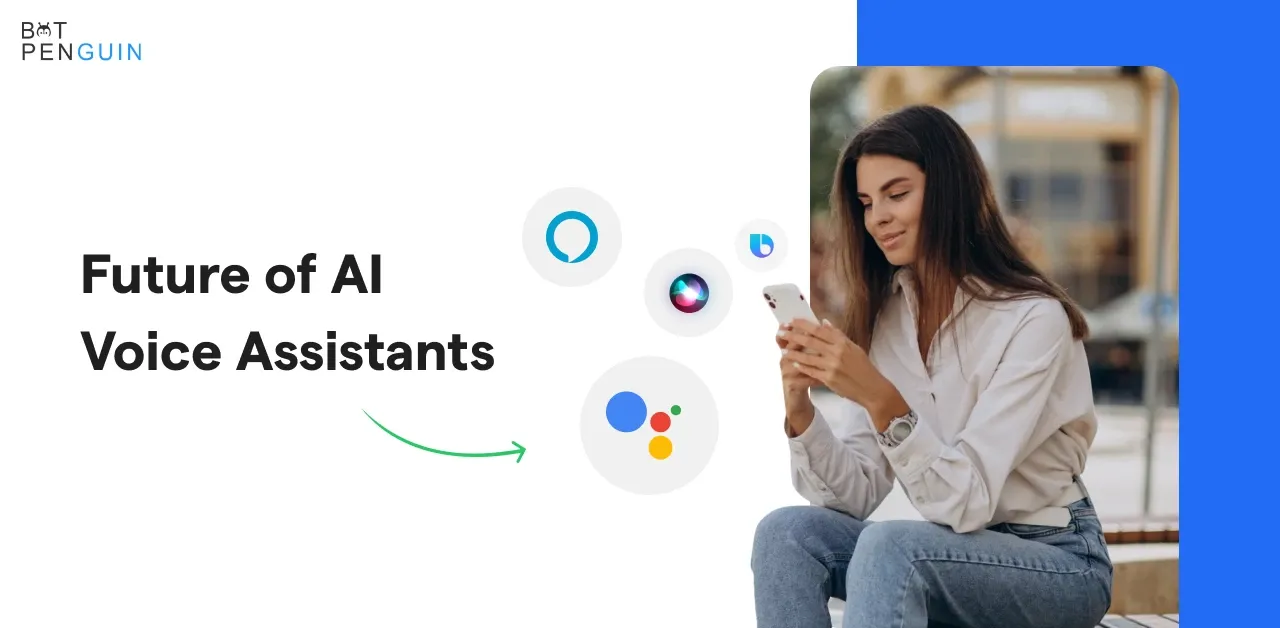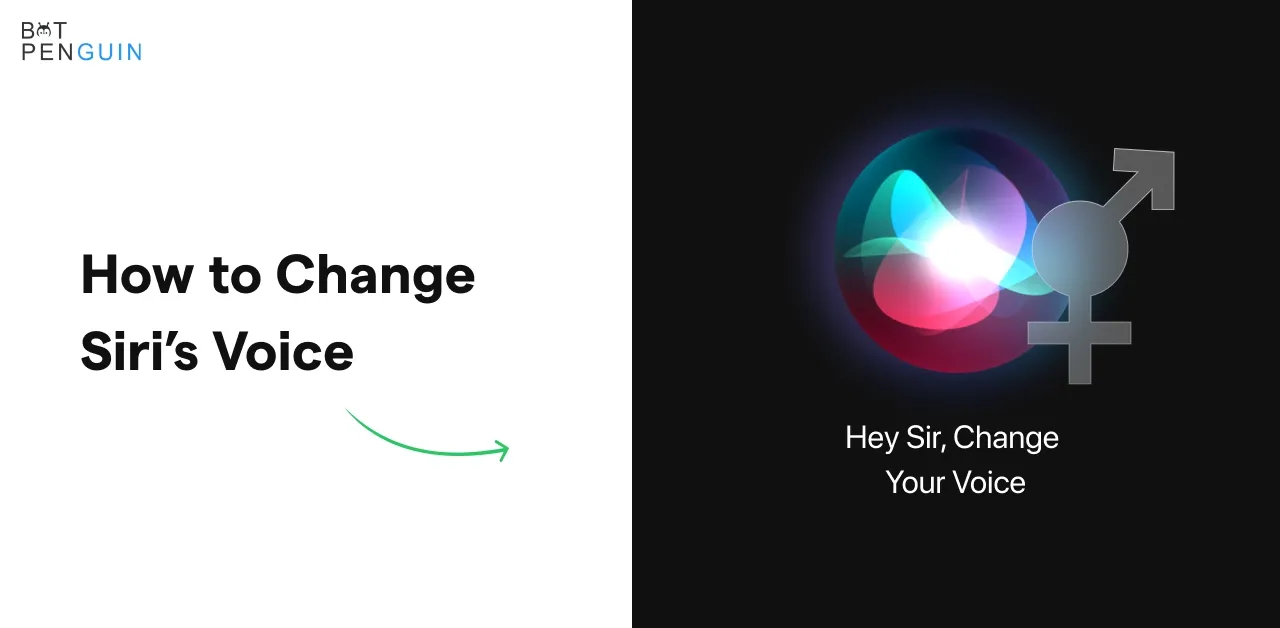Customers expect businesses to provide rapid and efficient service in the modern world. However, managing incoming calls and queries can take time and effort, especially for small firms.
This is where a virtual receptionist can help.
According to an Accenture survey, 89% of customers become frustrated when they must repeat their complaints to many agents. That’s why efficient and flawless customer service interactions are critical.
A virtual receptionist is an advanced gatekeeper, handling and routing incoming calls to the appropriate organizational departments or employees.
However, its influence extends far beyond call handling.
The Rise of Automated Virtual Receptionists
Automated virtual receptionists, powered by AI and natural language processing, are gaining prominence in various industries. These digital assistants perform tasks like call routing, appointment scheduling, and answering frequently asked questions, reducing the workload on human receptionists.
Benefits of Automated Virtual Receptionists
Automated virtual receptionists offer several benefits to businesses, enhancing their efficiency and customer service. Here are the key advantages:
Increased Efficiency and Availability
One of the key advantages of using automated virtual receptionists is the significant improvement in efficiency and availability.
Unlike human receptionists, who may require breaks or time off, virtual receptionists are available 24/7, ensuring no customer calls go unanswered.
They can handle multiple calls simultaneously without any delay, resulting in reduced waiting times for customers and increased overall efficiency of customer service operations.
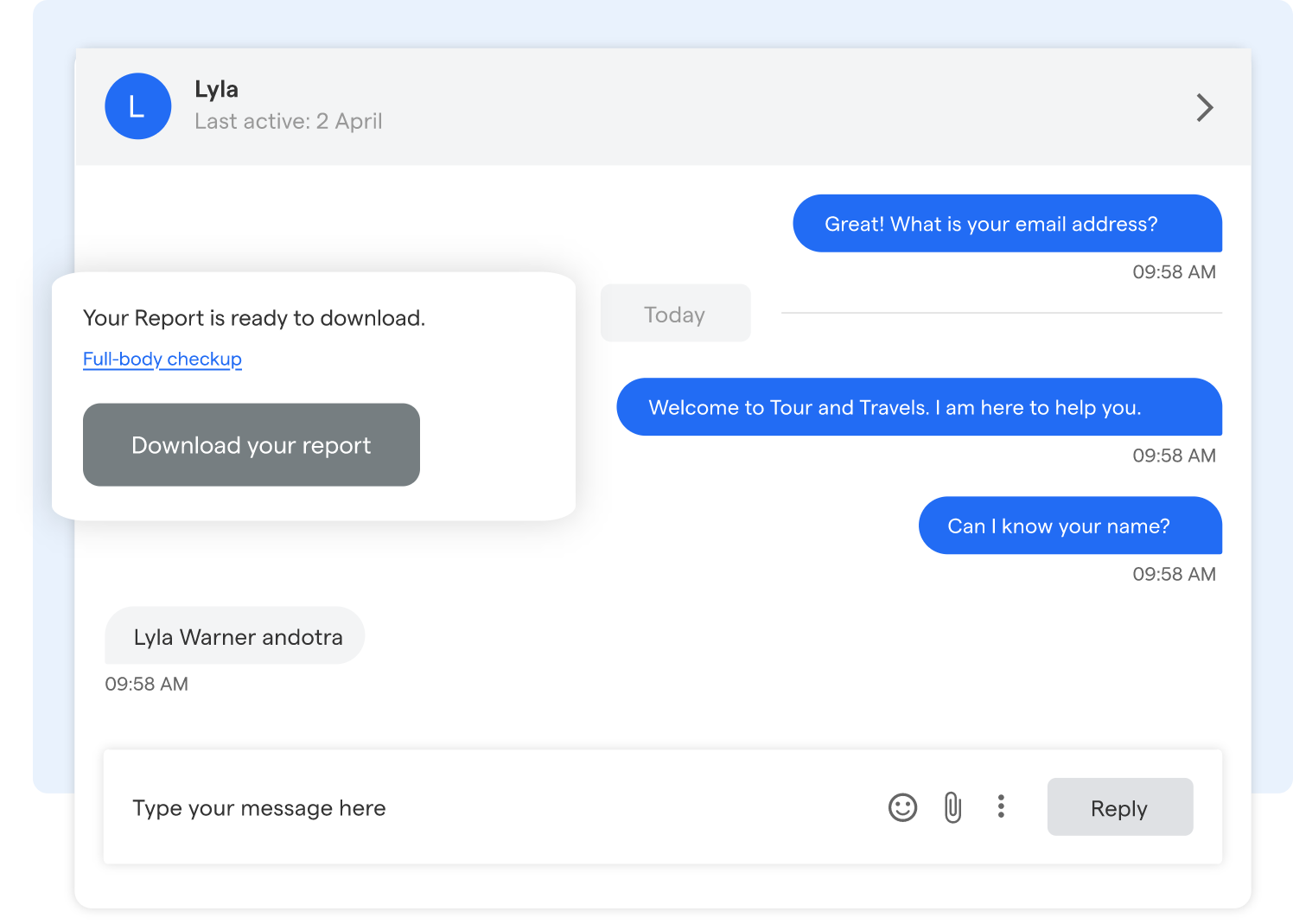
Cost-Effective Solution
Implementing an automated virtual receptionist system can result in significant cost savings for businesses. Hiring and training human receptionists can be costly, not to mention the additional expenses associated with employee benefits and salaries.
On the other hand, an automated virtual receptionist requires no ongoing salary or benefits, making it a cost-effective option.
Businesses can redirect their resources to other critical areas while ensuring exceptional customer service.
Personalized and Consistent Customer Experience
AI-powered virtual receptionists can analyze and understand customer preferences, creating a highly personalized customer experience.
By integrating chatbot technology, businesses can create a system that manages all customer calls and inquiries from one platform. Virtual receptionists can access customer data, history, and previous interactions to provide tailored assistance.
This level of personalization not only enhances customer satisfaction but also fosters long-term loyalty.
And talking about chatbots, you are not far behind from implementing chatbots effortlessly. Meet BotPenguin, the home of chatbot solutions.
With all the heavy work of chatbot development already done for you, simply use its drag-and-drop feature to build an AI-powered chatbot for platforms like:
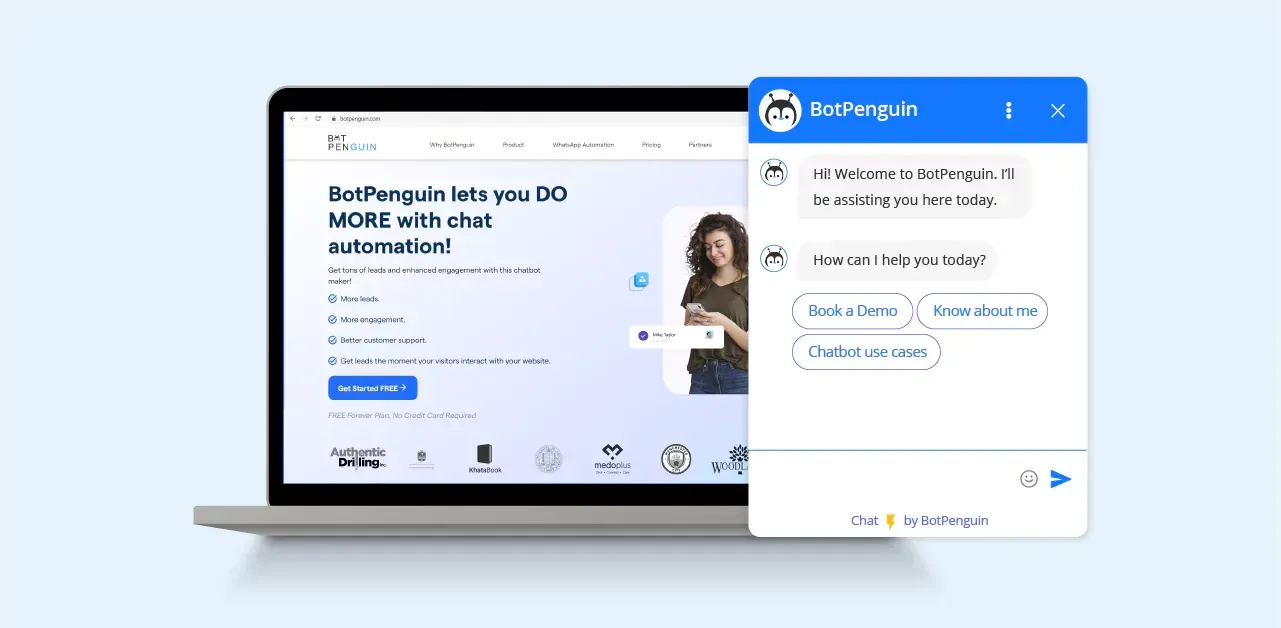
Seamless Integration with Existing Systems
Implementing an automated virtual receptionist system does not mean businesses must overhaul their customer service infrastructure.
These systems can seamlessly integrate with existing phone systems and software, making the transition smooth and hassle-free.
Existing phone numbers can be easily transferred to the virtual receptionist system, ensuring no disruption to customer communications.
Furthermore, automated receptionists can be customized and trained to align with the business's branding and voice.
The Role of AI in Virtual Receptionists
AI plays a pivotal role in enhancing the capabilities and effectiveness of virtual receptionists in the following ways:
Natural Language Processing (NLP)
One key aspect of AI that powers automated virtual receptionists is Natural Language Processing (NLP).
NLP enables machines to understand and interpret human language accurately, allowing virtual receptionists to converse with customers effortlessly.
NLP algorithms enable these AI-powered assistants to comprehend diverse accents, dialects, and complex sentence structures, ensuring seamless communication.
In addition, NLP enables virtual receptionists to accurately identify customer intent and extract relevant information from their queries.
This ensures that customers are promptly directed to the appropriate solution or department within the organization, reducing the need for further transfers or callbacks.
As a result, customer satisfaction is significantly enhanced, and valuable time is saved for both customers and businesses.
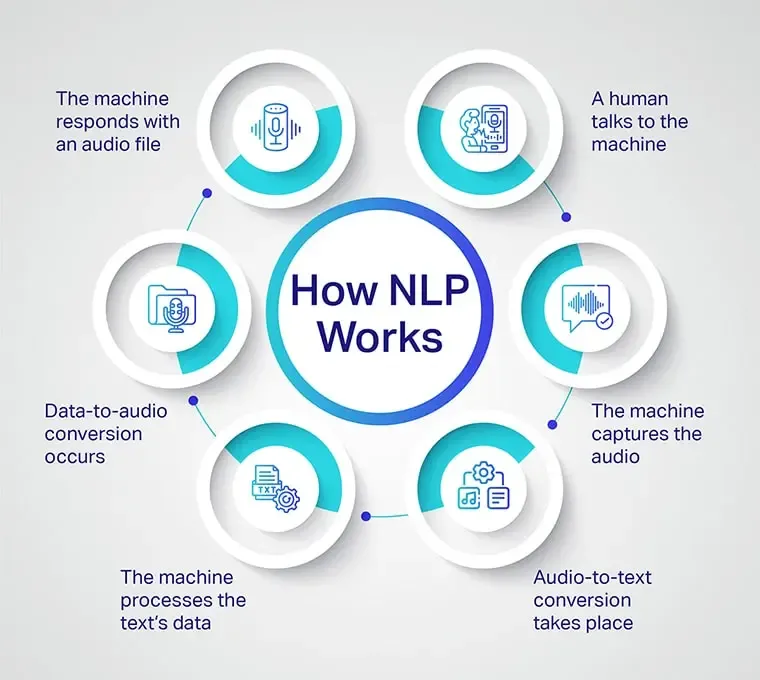
Machine Learning
Another crucial aspect of AI in virtual receptionists is Machine Learning. Machine Learning algorithms enable these systems to continuously improve performance by learning from real-time data.
As virtual receptionists interact with customers and handle their queries, they gather valuable insights that help them refine their responses and become more efficient over time.
Moreover, Machine Learning empowers virtual receptionists to adapt and evolve to changing customer needs. These systems can anticipate customer preferences by analyzing historical data and providing proactive suggestions or recommendations.
This level of proactive support enhances customer satisfaction and gives businesses ample opportunities for upselling and cross-selling.
Suggested Reading:
AI-Powered Virtual Receptionists Enhancing Customer Service
AI-powered virtual receptionists are making a significant impact on enhancing customer service. Here's how:
Efficient Call Routing and Transfer
Automated virtual receptionists efficiently route calls to the right departments or individuals. Through speech recognition and natural language processing, they can identify keywords and phrases to determine the purpose of the call.
This eliminates the need for customers to navigate complex menu options and ensures that their calls are directed to the most appropriate person or department.
Additionally, automated virtual receptionists can transfer calls seamlessly, minimizing the need for customers to repeat their concerns to multiple representatives.
24/7 Customer Support
The availability of round-the-clock customer support is crucial in today's globalized business landscape. Automated virtual receptionists offer businesses the ability to provide 24/7 customer support without human intervention.
Customers can make inquiries, request information, or even place orders at any time of the day or night.
This enhances customer satisfaction and gives businesses a competitive edge by offering uninterrupted service.
Efficient Appointment Scheduling
Automated virtual receptionists can effectively manage appointment scheduling, alleviating the burden on human receptionists.
Virtual receptionists can check availability and book appointments based on specific parameters by integrating with a business's existing calendar system. They can also send reminders and confirmations to customers, reducing the possibility of missed appointments or scheduling errors.
This automation streamlines the appointment booking process, allowing businesses to focus on other essential tasks.
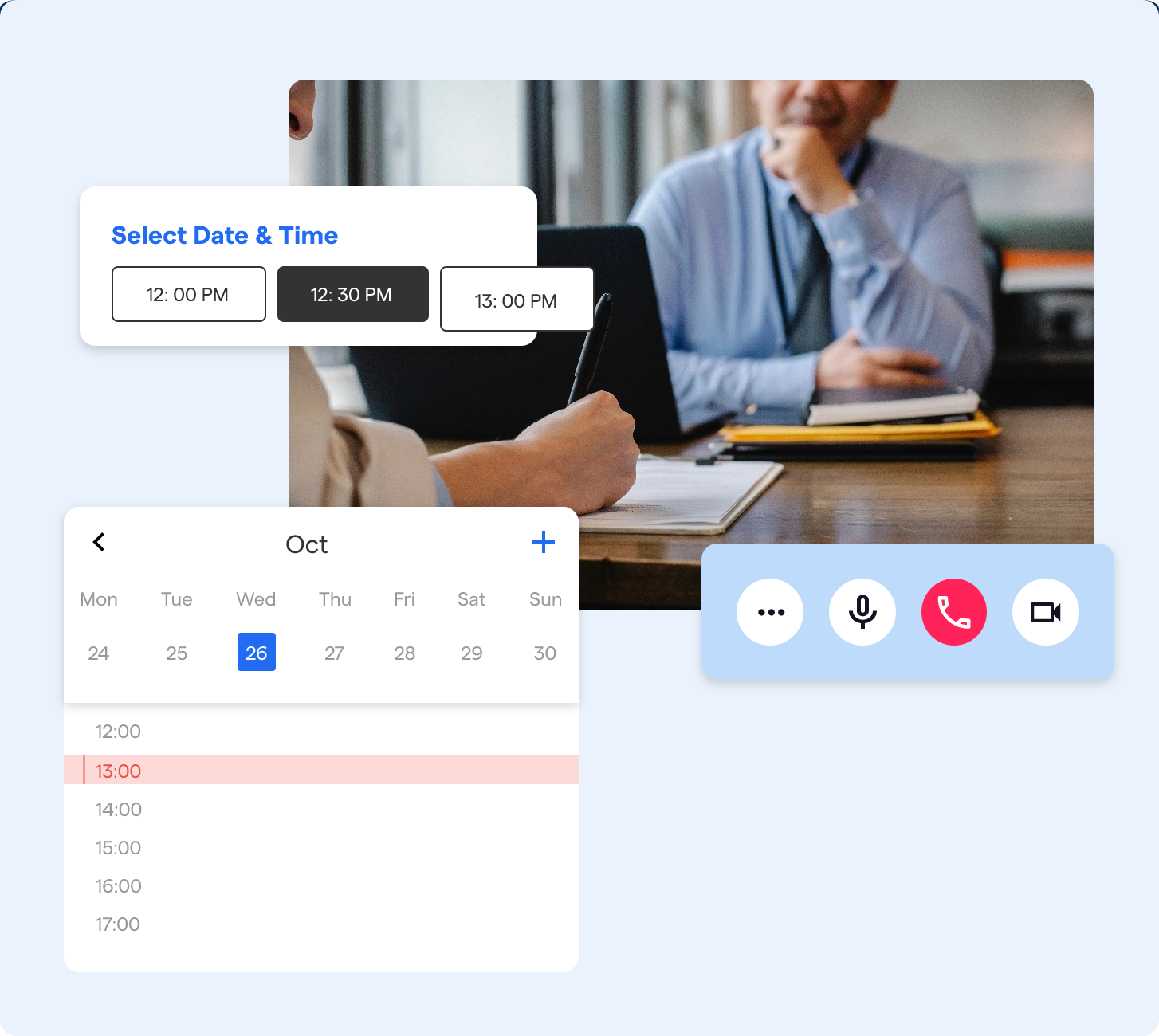
Enhanced Data Collection and Analysis
AI-powered virtual receptionists can collect and analyze valuable customer data. They can capture customer information during calls, such as names, contact details, and specific requests, which can then be stored for future use or analysis.
This data can give businesses valuable insights into customer preferences, pain points, and trends, enabling them to make data-driven decisions and improve their overall customer service strategy.
Integration and Workflow Optimization
Integration and workflow optimization are crucial aspects of implementing AI-powered virtual receptionists effectively. Here's how businesses can achieve this:
Integration with Existing Systems
One of the major advantages of automated virtual receptionists is their ability to integrate with existing communication systems seamlessly.
From traditional telephone networks to VoIP platforms and even popular messaging apps, these virtual receptionists can be deployed across multiple channels to serve customers through their preferred medium.
Additionally, virtual receptionists integrated with existing systems give organizations complete control over their call flows.
Businesses can set up customized call routing rules, assign specific virtual receptionists to handle certain calls, and establish priority levels for customer segments.
This flexibility ensures that every customer is directed to the appropriate representative and receives the necessary assistance promptly.
Workflow Optimization
Moreover, automated virtual receptionists enable organizations to optimize their workflows by efficiently managing and prioritizing customer calls.
These systems can automatically categorize incoming calls based on urgency or subject matter, ensuring that critical issues are addressed promptly.
Additionally, virtual receptionists can provide businesses with comprehensive call analytics, including call duration, wait times, and customer feedback. This enables them to make data-driven decisions to improve their customer service operations.
The Future of Customer Service
The customer service landscape is profoundly transformed, driven by technological advancements and shifting consumer expectations. In this dynamic era, the future of customer service is marked by several key trends:
AI-Powered Assistance
Artificial Intelligence (AI) and chatbots are becoming central to customer service. These intelligent systems can provide instant responses, personalized recommendations, and streamline issue resolution, all while reducing response times.
Omnichannel Support
Customers now interact with businesses through various channels, including social media, messaging apps, and traditional phone calls. The future of customer service lies in seamlessly integrating these channels to provide consistent and efficient support.
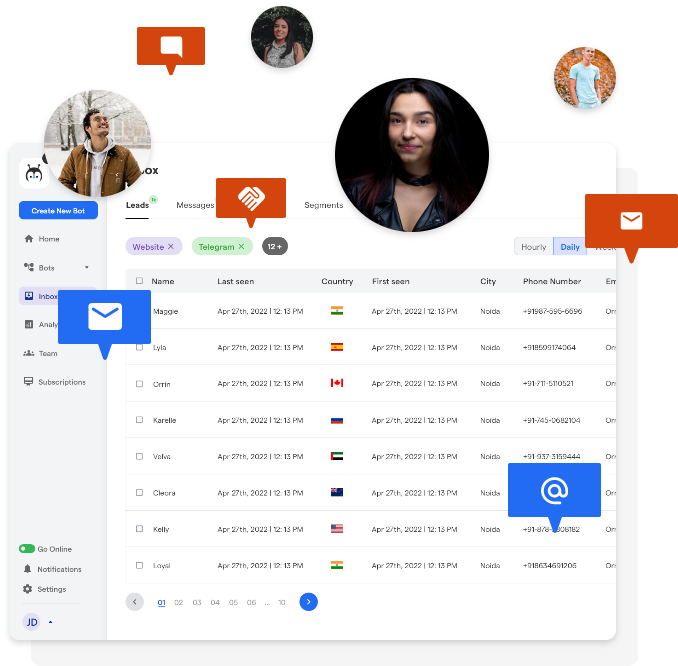
Data-Driven Insights
Companies harness data analytics to gain deeper insights into customer behavior and preferences. Predictive analytics help anticipate customer needs, enabling proactive and personalized service.
Self-Service Options
Customers increasingly prefer self-service options like FAQs, knowledge bases, and online communities. Providing easy-to-access resources empowers customers to find solutions independently.
Emphasis on Emotional Intelligence
While automation is vital, emotional intelligence remains critical. Human agents with empathetic and problem-solving skills will continue to play a pivotal role in customer service.
Proactive Engagement
Companies are shifting from reactive to proactive customer service. AI-driven systems can identify potential issues and reach customers before problems escalate.
Enhanced Security
With the rising concern for data privacy, robust cybersecurity measures and transparent data handling are essential for building customer trust.
Conclusion
Delivering exceptional customer service is vital, but there are more efficient ways than always having someone at the welcome desk.
BotPenguin's AI-powered virtual receptionist chatbots are now available.
Through natural dialogues across messaging channels, our bots provide personalized, instant customer care 24 hours a day, seven days a week.
Direct customer inquiries, provide helpful information, schedule meetings, and handle difficulties using BotPenguin's virtual receptionist.
While you focus on higher-value work, your consumers receive prompt, high-quality service on demand. Integrations with calendars and CRMs provide for a more streamlined experience.
Using our analytics, you may gain data-driven insights to increase client satisfaction continuously. Allow BotPenguin's virtual receptionist to provide 5-star service 24 hours a day, 7 days a week.
Reduce costs and overhead while improving customer satisfaction. Customer service in the future will be both automated and human.
Sign up to BotPenguin now to start using your virtual receptionist!
Frequently Asked Questions (FAQs)
How exactly do automated virtual receptionists work?
Automated virtual receptionists use AI technology to answer and assist customers' inquiries via voice or chat. They can handle tasks such as appointment scheduling, answering FAQs, and transferring calls to the appropriate department.
Can automated virtual receptionists replace human customer service agents entirely?
While automated virtual receptionists can handle routine inquiries effectively, they might possess different empathy and problem-solving skills than humans. However, they can complement human agents by handling repetitive tasks and freeing up their time to focus on complex issues.
Are automated virtual receptionists customizable for different industries?
Yes, automated virtual receptionists can be customized to fit the needs of various industries. They can be programmed with industry-specific terminology FAQs and even integrate with existing CRM systems, making them adaptable to any business.
How secure are automated virtual receptionists in handling customer data?
To ensure data security, reputable automated virtual receptionist providers utilize encryption technology and follow strict security protocols.
Are there any limitations to using automated virtual receptionists?
While they excel at handling routine tasks, automated virtual receptionists may need help with complex or nuanced inquiries. There needs to be more emotional intelligence.


